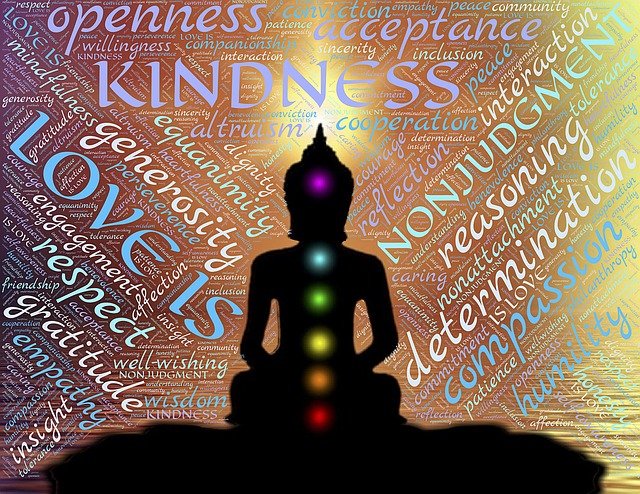Everyone desires love in their lives. That’s really at the basis of who we are and what our larger purpose is—to expand into being able to hold and radiate more love. We seek to do that in the relationships we have, which is great. But what we need to understand is that your first and most important relationship is with yourself.
There are many reasons that attending to our love and compassion for ourselves is vital.
We actually train others how to treat us by how we treat ourselves. If you don’t see yourself as worthy of compassion, others won’t either. If you constantly give to others without compassion for yourself, it leads to unbalanced and unhealthy relationships.
One of the main reasons to practice self-compassion is to develop resiliency in life.
Resiliency means being able to distinguish between making a bad decision and being a bad person. When things go wrong, we need to be able to maintain our sense of self-worth in order to recover and move forward. Having a strong sense of self-compassion allows us to learn from our mistakes, forgive ourselves and let go of past mistakes.
Think of how it feels to beat up on yourself after making what you consider to be a mistake. That energy is a low vibration and keeps you stuck in re-creating and attracting more experiences like it. That’s why some people keep attracting the same relationship over and over. The names and faces may change, but the relationship issues stay the same.
Now think about how it feels to be in a state of self-esteem and self-forgiveness. That is a high energy that allows you to move forward and attract what you really want.
How to practice self-compassion:
1. Treat yourself as you would a small child.
Reach inward and find the child within you. You would offer love and support to a small child, no matter what she did or didn’t do. Do that for yourself.
2. Re-frame your “mistakes”.
We go through life making choices and sometimes those choices have an outcome we don’t like. Instead of beating yourself up over a bad outcome, understand this experience was simply that—an experience.
What did you learn from it? What are the blessings that you gained? Make a list of all the ways in which you’ve grown as a result of what seemed like a mistake. Did you gain in clarity? Are you more resilient? Are you more tolerant?
3. Don’t think you have to be perfect—no one is.
That’s part of being human. If we were perfect we wouldn’t need to be here. Life is about learning from everything we experience. We often learn the most and grow the most from the choices that didn’t work out.
4. Be mindful of your self-talk.
Scientists say 95% of our thoughts are habitual. 80% of those habitual thoughts are negative! It’s important to be aware of and silence the inner critic in order to be kind to ourselves and effect real change. Most self-critical thoughts stem from what we heard in childhood and many are simply trying to help or protect us in some way. The problem is, they’re not keeping up with who we really are now and who we want to be.
When self-critical thoughts show up, simply thank them for what they’re trying to do for you and let them go. You may follow it up by a new, supportive thought or gratitude.
5. Work with a supportive coach.
The support of a coach can help you uncover your habitual negative thoughts and beliefs and offer practices and strategies to shift your thinking to more self-compassion and kindness.
If you’re interested in exploring coaching, you can schedule a complimentary 60 minute session with me here. Or, you can message me here if you’d like to schedule a session not related to your purpose or meaningful work.



